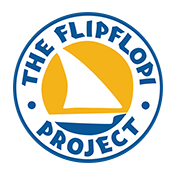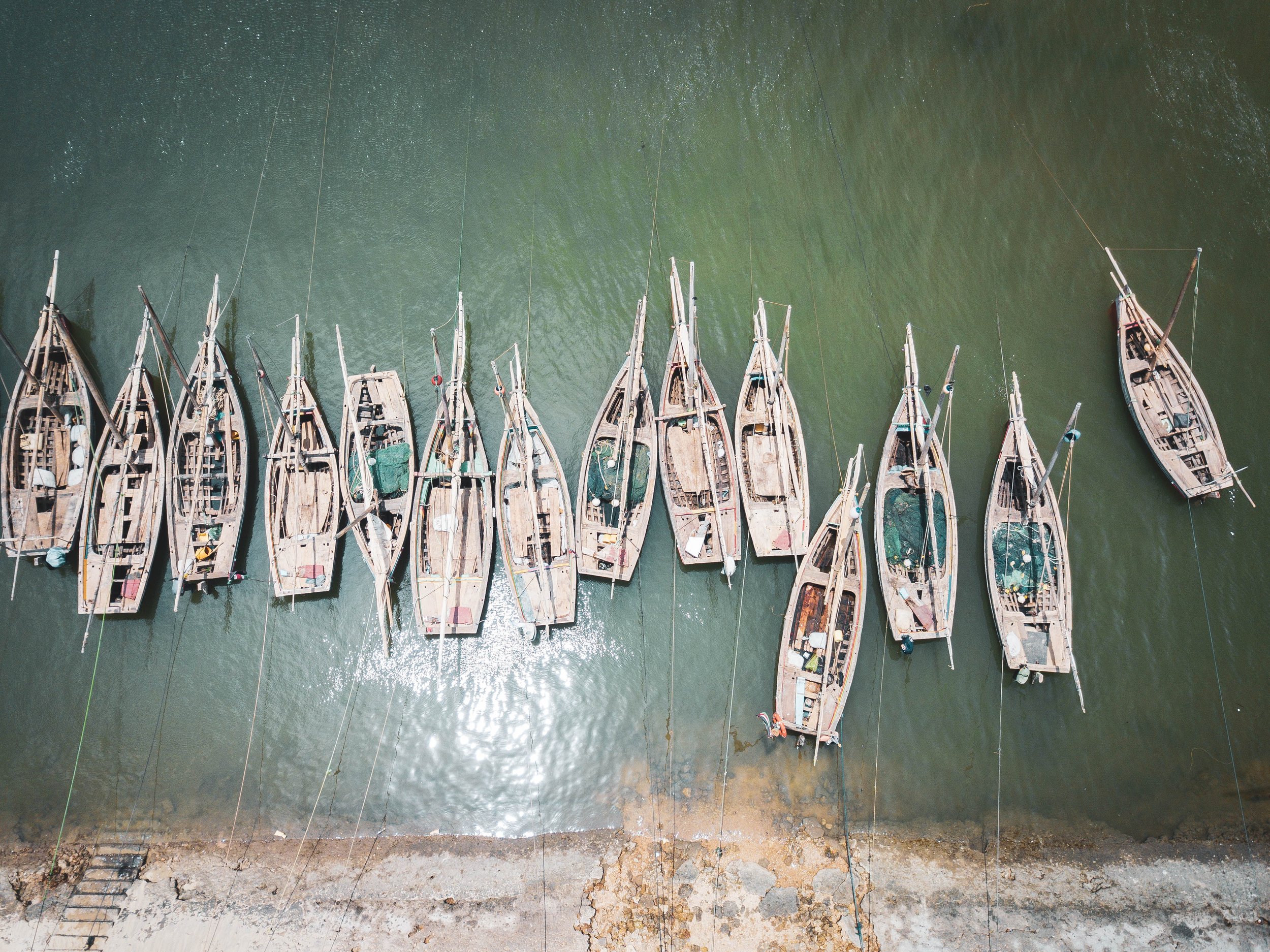Establishing a sustainable foundation to mitigate plastic pollution across the Lamu Archipelago
The Lamu archipelago is home to almost 50% of Kenya's coastline and holds 70% of Kenya’s mangrove forests. It’s a hotspot for biodiversity including whale sharks and over 550 plant and 50 animal species that can be found nowhere else in the world.
The nature of currents in this part of the ocean also means that it’s a recipient of tonnes of plastic coming in from other countries possibly as far as SouthEast Asia. Small islands like Lamu don’t have adequate waste management systems for waste generated on the island, let alone plastics washing ashore.
And while there has been some research to quantify plastics in the ocean, a lot still remains unknown about this region of the Western Indian Ocean.
Mapping the extent of plastic pollution and identifying opportunities for community-led waste management solutions was the primary objective of Flipflopi’s latest science-at-sea expedition. This three month study culminating in a 10 day expedition was designed to inform the first-of-its-kind marine litter study in the region.
Finding out the hotspots, types and quantities of marine litter is crucial for us to inform improved waste management and recycling systems for the Lamu community. And more importantly, to lay a baseline for how we can work on reducing ocean bound plastics.
The results
Unsurprisingly, 69.9% of marine macro-litter collected was plastic: of all the materials collected, the second most common item was our eponymous flip-flop and > 50% of the top 10 plastic materials recovered were found to be recyclable.
The macroplastic study was led by CORDIO East Africa with support from the Watamu Marine Association, and University of Portsmouth.
A key objective of the study was to identify local community knowledge and attitudes around plastic waste and understand existing community waste management methods: thus, 700 individual surveys were also conducted prior to and during the expedition.
The results? While 98% of respondents viewed plastic waste as a problem, many are not fully aware of the extent of its impact on people, biodiversity and livelihoods. Burning, burying and dumping are still common ways of disposal with the prevailing belief is that the ocean will wash it away.
It was encouraging to meet community groups like the Baharia Moja women's group: seeing that there are already foundations in place to build upon for future cross-island collaborations as we continue to develop the blueprints of the archipelago’s first plastic recycling and waste management centre.
Developing Lamu’s first plastic material recovery and recycling centre
5 years after collecting 10 tonnes of plastic waste to build our first traditional dhow over the course of 2 years, we can now process even more plastics by ourselves in Lamu (12 tonnes) each month!
And with this, our proudly gender balanced workshop continues to have the potential for further growth and improved efficiency.
After an initial market research and analysis, we’ve defined 4 key products with a great potential and value for commercialisation locally. We’ve developed product specifications for 4 person benches, fence posts, taxi dhows and fishing canoes that are currently undergoing further R&D locally as well as in the facilities at University of Northumbria.
By producing commercially viable recycled plastic products, we're not only closing the loop on plastic waste but are also providing a sustainable alternative to harvesting indigenous trees which are already under threat.
“We know post consumer plastic can work as a raw material, so we can use it to create other types of traditional boats, and preserve our dying heritage and provide a sustainable alternative to trees being chopped down for wood”
Heritage boat building
As we continue to scale our production and test our material strength, our plans to operate a small industrial scale plastic recycling plant and heritage boat building program on the Lamu Archipelago are looking more optimistic than ever.
The baseline survey
is part of a long-term partnership funded by UK Aid’s Sustainable Manufacturing and Environmental Pollution (SMEP) Programme.
Further support for the expedition was received from long-term supporters including UNEP, The Africa Legal Network, and the French Embassy in Kenya. None of this would’ve been possible without the endless support of our friends and partners including NEMA, Lamu County Government, National Museums of Kenya, KWS, KMA, KMFRI, University of Dar es Salaam, TakatakaHeroes, CORDIO, University of Portsmouth, University of Northumbria, Watamu Marine Association, the amazing Flipflopi team and all the truly inspiring community groups that we engaged with. Asanteni sana




